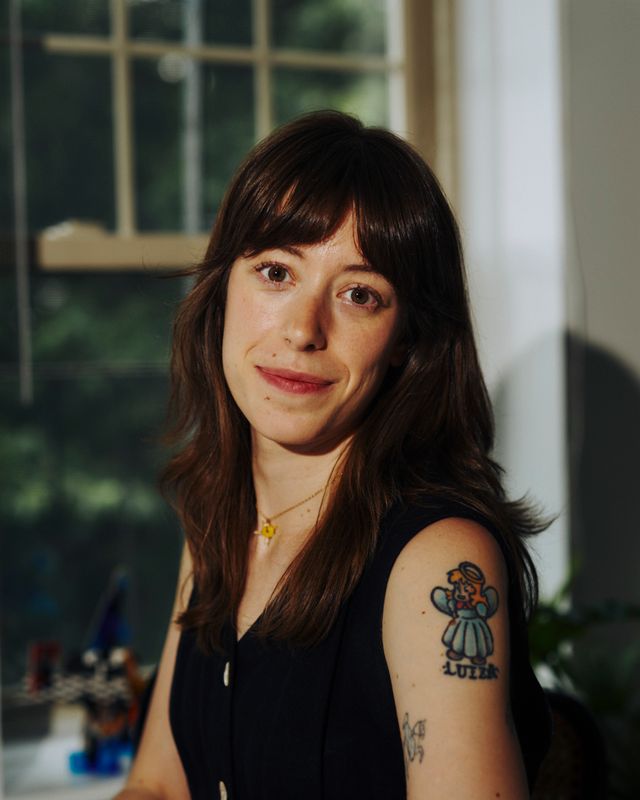
An Uncomplicated Guide To Finding Your Passion
There are many reasons why you might find yourself looking for a passion. Maybe you’ve been lukewarm on life for a while, stringing things together without any real verve or luster. Maybe you’ve experienced a big change that dismantled your ideas about yourself, and you’re ready to reclaim your life. Maybe you’ve always sensed that there was something bigger out there for you, but you’re still not exactly sure how to commit. Whatever the cause, it isn’t too late to figure out what makes you tick. But how? 🕰️
We tend to use the word “passion” casually — but Barbara Cassin’s “Dictionary of Untranslatables” reminds us of the term’s more um, intense history. She explains, “‘to suffer, endure, resign oneself to, allow’—is one of the possible translations of the Greek pathos, from paschein, ‘to receive an impression or sensation, to undergo treatment, to be punished.’” (The Catholics among us will be reminded of the scenes on the stained glass windows lining their church walls.) Thought of in these terms, passion is what captures us, what brings us to the limit of what we can control. It’s no wonder many of us feel at a distance from our passion. It doesn’t always feel safe or easy to encounter what we really desire.
“The funny thing about passion is that the harder you search, the less likely you are to find it.”
The funny thing about passion is, that the harder you search, the less likely you are to find it. While it’s good to try new things, it’s unlikely that something you have no connection to will be your next great love. In my view, it’s more essential to slow down and take notice of where your attention lands, the details of your own personal history, and to just let your mind wander. This is how we best reckon with difficult problems, and how eventually great ideas come forth. The most important thing in discovering your passion is to stop searching and allow it to emerge.
That’s all to say, while finding your passion might not be easy, it certainly isn’t complicated. Below, I’ve put together some exercises to help you discover (most likely re-discover!) your passion. What to do after that? Well, it’s all up to you.
Take note of your natural curiosity.
Even at our most disaffected or detached, some things pique our attention. When you’re in conversation with a new acquaintance, what do you want to know about them? Do you tend to have questions about their job, their family, or some other interest? Another example: When you pick up a newspaper, what section do you naturally turn to? (Arts & Culture here 🙋🏻♀️) Pay attention to moments like these to establish a sense of what subjects or areas you enjoy.
“When you pick up a newspaper, what section do you naturally turn to?”
You can even stage this activity to help: Try grabbing a coffee table book (or any photo album or book with images will do!). Flip through the pages and mark your favorite places. Then take a moment to meditate on the qualities of the photos you selected. What features stand out? Do your selections have anything in common? (If you chose between various books, take note of which book you picked too.) Nothing is too small or too obvious to notice at this point. Jot down what you find. You can create a word bubble or write something long-form.
Have a conversation with someone who knows you well.
Speak to a close friend or family member who you trust, and ask for their impressions of you. It’s not often that we get an unfiltered sense of how the world sees us. Think about how easily most people brush off compliments and avoid the question of how they’re seen in the world. While you’re the only person who is an authority on you, other people can reflect back to us parts of ourselves that we’re less familiar with.
For instance, I was recently chatting with a friend who mentioned that she took what I said seriously because she knew I mulled things over for a long time before letting them come into speech. I always thought of my hesitancy to speak as shyness or inhibition, but in conversation with my friend, it took on a new valence of contemplativeness that was connected with my love for knowledge and research.
“Other people can reflect back to us parts of ourselves that we’re less familiar with.”
Here are a few questions to ask: How would you describe my personality in a few words? Is there a job that you think I would excel at? If we were traveling abroad together to a remote location, what responsibility would you give me? Allow this to be a wide-ranging conversation, and remember: It’s just to gather information on your natural proclivities. Just because your friend says you’d be a good vet, you don’t need to enroll in veterinarian school. Instead, stay focused on the qualities you possess that made them choose this role for you.
Reflect on your childhood obsessions.
When I was young, I was enthralled by “The Wizard of Oz.” My mom (see directly above!) recounted this to me at some point in my 20s. Apparently, as a child, I knew the names of everyone involved in the production, details about filming, and so on. I still recognize this in myself today. I love to read about the latest film releases, check out the director’s other work, and trace the web of Hollywood connections between actors, filming locations, and studios. I also remember a small toy I had that resembled a palette of blush. The blush wasn’t real but it was rose-scented. Today, I love perfumes. I can spend hours researching, trying, and talking about new perfumes without tiring of it once.
“You may find unexpected resonances with things you still love, and that can indicate that it’s an area where your passion lies.”
Take some time to daydream about your fond childhood memories. You may find unexpected resonances with things you still love, and that can indicate that it’s an area where your passion lies. Are there any sensory memories that come up for you? A specific toy or object that you loved? Or maybe you’ll remember filling a specific role in your family dynamic? If you were an older sibling, did you like the feeling of being in charge — or were you more of a jokester? All of these can be important in-roads to understanding what defines your singular passion.
Now that you’ve spent time uncovering what it is that makes you you, take time to swim in the morass of meaning you’ve gathered. Your passion might combine some elements of what you’ve found in interesting ways. (Did you love watching soccer as a child with your father; playing with a toy microphone; and do your friends say that you make funny observations at parties? Maybe you should be a sports commentator!) But don’t think too much about mapping your passion onto something that can make you money, or any other such goal — at least not yet.
If you move too quickly to capitalize on your passion, you’re bound to lose it again. Remember, slow and steady wins the race. If you can be patient now in the pursuit of identifying your passion, then you’ll have more conviction later when you’re leveraging it for a job or to sustain passion projects down the line. Relax, and let what you love lead.
Ashley D’Arcy is the Senior Editor at The Good Trade. She holds an MA in Philosophy from The New School for Social Research and has contributed to esteemed outlets such as The Nation, 032c, and Yale School of Management’s Insights where she’s leveraged her expertise in making complex ideas accessible to a broad audience. In addition to her editorial work, she is training as a psychoanalytic mental health professional and provides care to patients in New York City. Ashley also explores sustainable fashion, clean beauty, and wellness trends, combining thoughtful cultural critiques with a commitment to mindful living.




